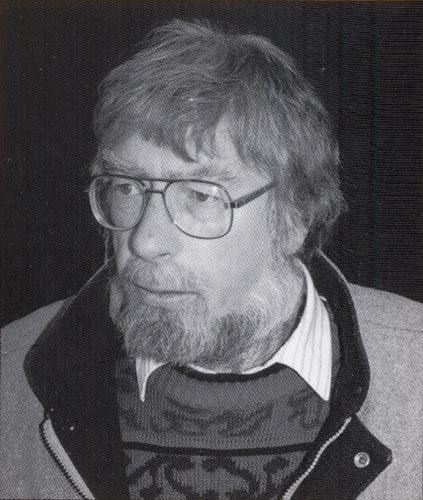Al Pittman (1940-2001)
Al Pittman, a writer and teacher, was born in St. Leonard's, Placentia Bay in 1940 to Alphonsus and Mary (Leonard) Pittman. He left Placentia Bay at an early age, but the traditions and stories of his birthplace continued to influence his writing. Pittman spent his childhood in Corner Brook and completed high school there. Later he attended Salem Teachers' College, and St. Thomas University in New Brunswick. He taught high school in Benoit's Cove, Corner Brook, Montreal, and on Fogo Island. Since 1973 he has taught in the English Department of Memorial University, first at the St. John's campus and later at Sir Wilfred Grenfell College in Corner Brook. It was also in 1973 that he, along with Clyde Rose, Tom Dawe, Dick Buehler, and Pat Byrne, began Breakwater Books. He spent his last years as Poet-in-Residence at Grenfell College; he died at Corner Brook in 2001.

Pittman was a writer who demonstrated his mastery of several forms. First and foremost he was a poet; he published six collections of poetry, his last being Thirty for Sixty, published by Breakwater in 1999. His poems, filled with striking images and sparkling wit, often recall specific events and people—note the number of his poems dedicated to particular individuals—but they are never ordinary. Some of them deal with the tribulations of his Catholic youth (“Once When I Was Drowning”; “Education”), while others are wry commentaries on the imponderables of existence generally (“It Happens All The Time”; “The Border”). Still others (“Kelly at Graveside”; “Becky's Waltz”) are celebrations of the magic flash of fire that only poetry can capture. The same qualities mark the short stories in his collection The Boughwolfen and Other Stories.
His two published plays, A Rope Against the Sun and West Moon, are set in and draw heavily on the folklore of Placentia Bay. On the surface they are concerned with resettlement and changing social conditions in Newfoundland, but in their exploration of issues such as life and death they address universal themes in a lyrical manner reminiscent of the writing of Dylan Thomas. They are very popular in Newfoundland, where successive productions have received outstanding reviews, and they continue to receive national and international accolades.
Pittman's three collections of children's rhymes demonstrate most brilliantly his sense of the fun to be had with language. They also have a serious side designed to introduce children to ideas of tolerance and fair play. In each case the books have been superbly illustrated by talented visual artists which makes them a delight for the eye as well.
It is perhaps as a songwriter that Pittman is least well known. Some of his songs were written to be sung by characters in his plays, but have gained lives of their own independent of the dramatic context. Others were written to recall some aspect of the traditional Newfoundland way of life or in response to specific social issues. A proposed CD of his songs which is currently in the planning stages will make all of them conveniently available for the first time.
Among the awards and honours which Pittman received were the Stephen Leacock Centennial Award and the Lydia Campbell Award for Writing.




